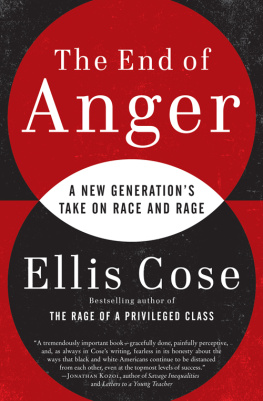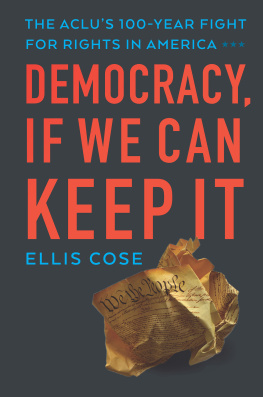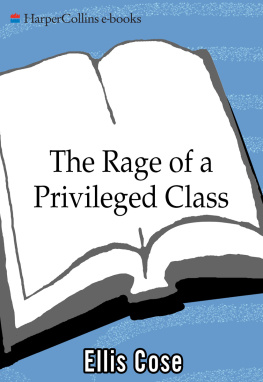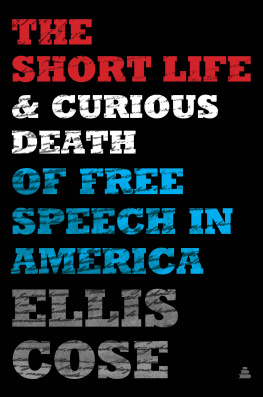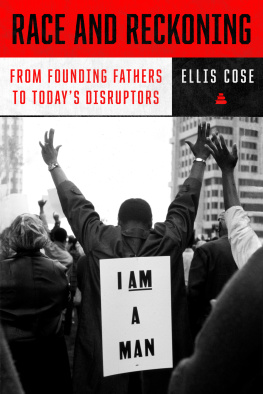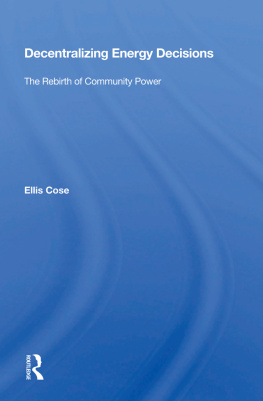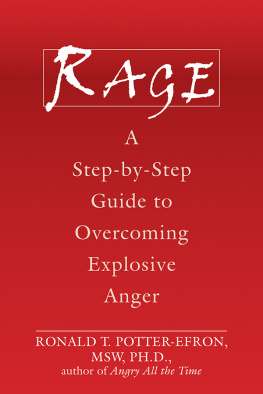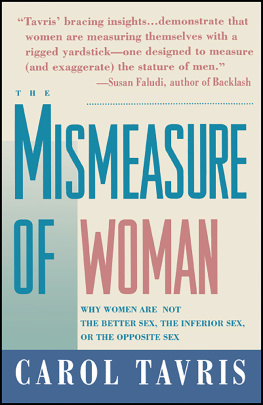The End of Anger
A New Generations Take on Race and Rage
Ellis Cose

For Elisa
May she see fulfilled the promise of her generation
Contents
Revising the Racial Contract
Children of the Dream
From the Hallowed Halls of Harvard
Fighters, Dreamers, and Believers
Hostiles, Neutrals, and Allies
Reaching Across the Generational Divide
A Place to Call Home
Jail, Jobs, School, and Hope
The End of Black Politics, Reconsidered
The Future of Civil Rights
Prejudice, Equality, and Our Capacity for Change
R age is asAmerican as Old Glory, whose primary hues, red and blue, depict both ourpatriotism and our polarization. And that anger, which periodically surgesthrough our body politic, seems of late to have reached an ugly crescendo. Withthe economy barely breathing, political partisanship rising, and the nationchanging in ways many find extremely unsettling, anger too often is the naturalresponse. But there is one group whose anger seems unusually tempered, leavenedwith more optimism than objective circumstances seem to justify. That group isAfrican Americans, who in the last few years have astounded pollsters with theirmoderation and hopefulness.
The End of Anger is anexploration of why it is that many blacks are feeling optimistic these days. Itis also a look at American generations, and at how the increasing maturity ofwhites, whose attitudes have changed through the yearsevolving, most notably,as they moved from parent to childhas freed a rising generation of AfricanAmericans and other people of color to aspire to a future their parents couldonly dream about. Black hope and white growth, in other words, are closelyrelated. This book will explain how.
Finally, The End ofAnger is a book about successabout a particularly privileged, evenindulged, group of African Americans whose experiences in many respects are farfrom the norm, but who show us, with their collective achievements, what ispossible when a people whose history is largely one of dampened, doomed, orshattered expectations are allowed to break free of the limits imposed byunthinking prejudice backed by carelessly wielded power.
But let me begin not with this current generationbut with the founding contradiction that for so long prevented America frombecoming what it proclaimed itself to be.
From its inception, America stood for equality.When Europe still clung to a moldy aristocracy, America proudly chosedemocracyalbeit democracy with a twist. For Americans also embraced slaveryanexception to their social system... carefully restricted to onesingle human race, in the words of Alexis de Tocqueville. Thatinconsistencythat contradiction at the core of the Unions foundingprincipleshas haunted this nation since its birth. More than a century afterslavery ended, African Americans were still struggling for acceptance andaffirmation, still uncomfortable in the only land they could call home. MichelleLaVaugh Robinson spoke for many of her race and generation when she acknowledgedin her senior thesis in 1985, I have found that at Princeton no matter howliberal and open-minded some of my White professors and classmates try to betoward me, I sometimes feel like a visitor on campus; as if I really dontbelong.
Today, as Americas First Lady, Michelle Obama iswarmly welcomed virtually wherever she chooses to go. And even African Americanswith no White House connection are fully at home in some of the nations mostexclusive establishments. No one present at the nations founding could haveimagined such a thing. Writing in the nineteenth century, even with theabolition movement building steam, de Tocqueville never saw this day coming.Those who hope that Europeans will one day mingle with Negroes...seem to me to be fostering a delusion, he wrote.
Today we are so far beyond mere mingling. We havea president who happily admits to being the result of an interracial union, who,indeed, presents his life story and his origin as evidence of the vitality ofthis great nation. Interracial coupling, once grounds for riots, now provokesmore yawns than outrage. Blacks, a race of people whose ancestors were draggedto this continent in chains and treated as property, now occupy some of the mostprivileged positions in the land. For at least some blacks and other so-calledpeople of color, the glass ceiling has simply ceased to exist.
In a now legendary speech, Martin Luther King Jr.challenged America to repay the promissory note to which every American was tofall heir and to make real the promises of democracy. Some believe that happyday has finally arrived. Or so they said in January 2009 on the eve of PresidentBarack Obamas inauguration. A CNN poll found that 69 percent of blacks agreedthat Martin Luther Kings vision had been fulfilled. That was double thenumber who agreed with the statement just twelve months previously. Indeed, inthe wake of Obamas election, pollsters discovered an abundance of upbeat news.A New York Times poll one hundred days into Obamastenure found that 70 percent of blacks thought the country was moving in theright direction, and it also found that two-thirds of all Americans believedrace relations to be good.
As America prepared for the 2010 midtermelectionswhich proved devastating for the Obama administrationblacks sharedlittle of the disenchantment that had overtaken many whites, according to apre-election poll by CBS News. African Americans were more likely than whites tosay that the economy was sound. And nearly half (compared to 16 percent ofwhites) thought that Americas next generation would be better off than thoseliving today. Race relations was the one area in which black confidence hadfaltered. Only 40 percent thought race relations were generally good (comparedto 63 percent of whites, and down from 59 percent three months after Obamaselection)a reaction, presumably, to what many perceived as a backlash againstthe Obama administration.
Coming in the midst of an economic crisis that hadhit African Americans particularly hard, the poll results were nothing short ofastounding. When I asked David Thomas, a black Harvard Business Schoolprofessor, about the CNN poll, he laughed. Its irrational exuberance, hesaid, invoking the phrase made famous by Alan Greenspan in referring toinvestors who plowed money into the stock market well past the point where itmade much sense. Thomass point was that the election of Obama was such anastounding and unprecedented event that it drove any number of people to theedge of delirium. Not since Joe Louis defeated Max Schmeling in 1938 had apublic event provoked such a display of jubilation in black neighborhoodsorsuch waves of self-congratulation in liberal white communities. More thantwo-thirds of Americans rated Obamas election as either the most importantadvanceor among the two or three most important advancesfor blacks in the pastone hundred years, reported Gallup.
The reason for the euphoria was obvious: Obamaselection made real what had previously been only a dream. Prior to the electionseason of 2008, it was impossible for many people to believe that a man of colorhad any chance of being president of the United States. And if a people couldnot believe that anyone of their race, no matter how gifted, would be allowed aserious shot at the top job, how could they believe that America was reallyready for equality?
I remember when the ex-Attorney General Mr. RobertKennedy said it was conceivable that in forty years in America we might have aNegro President, wrote James Baldwin in an essay published in the New York Times Magazine in 1965.
That sounded like a very emancipatedstatement to white people. They were not in Harlem when this statement was firstheard. They did not hear the laughter and bitterness and scorn with which thisstatement was greeted. From the point of view of the man in the Harlem barbershop, Bobby Kennedy only got here yesterday and now he is already on his way tothe Presidency. We were here for four hundred years and now he tells us thatmaybe in forty years, if you are good, we may let you become President.
Next page
